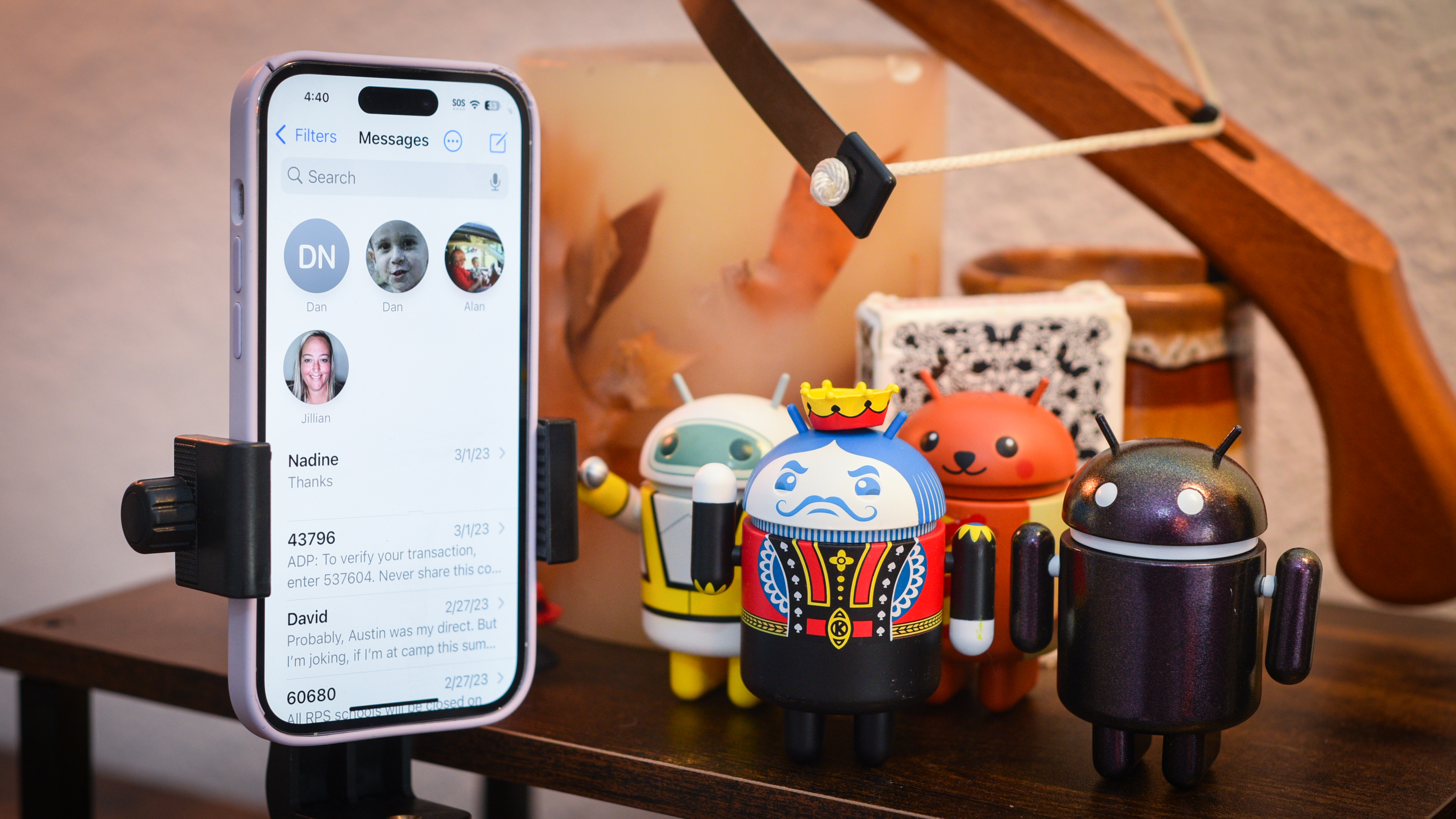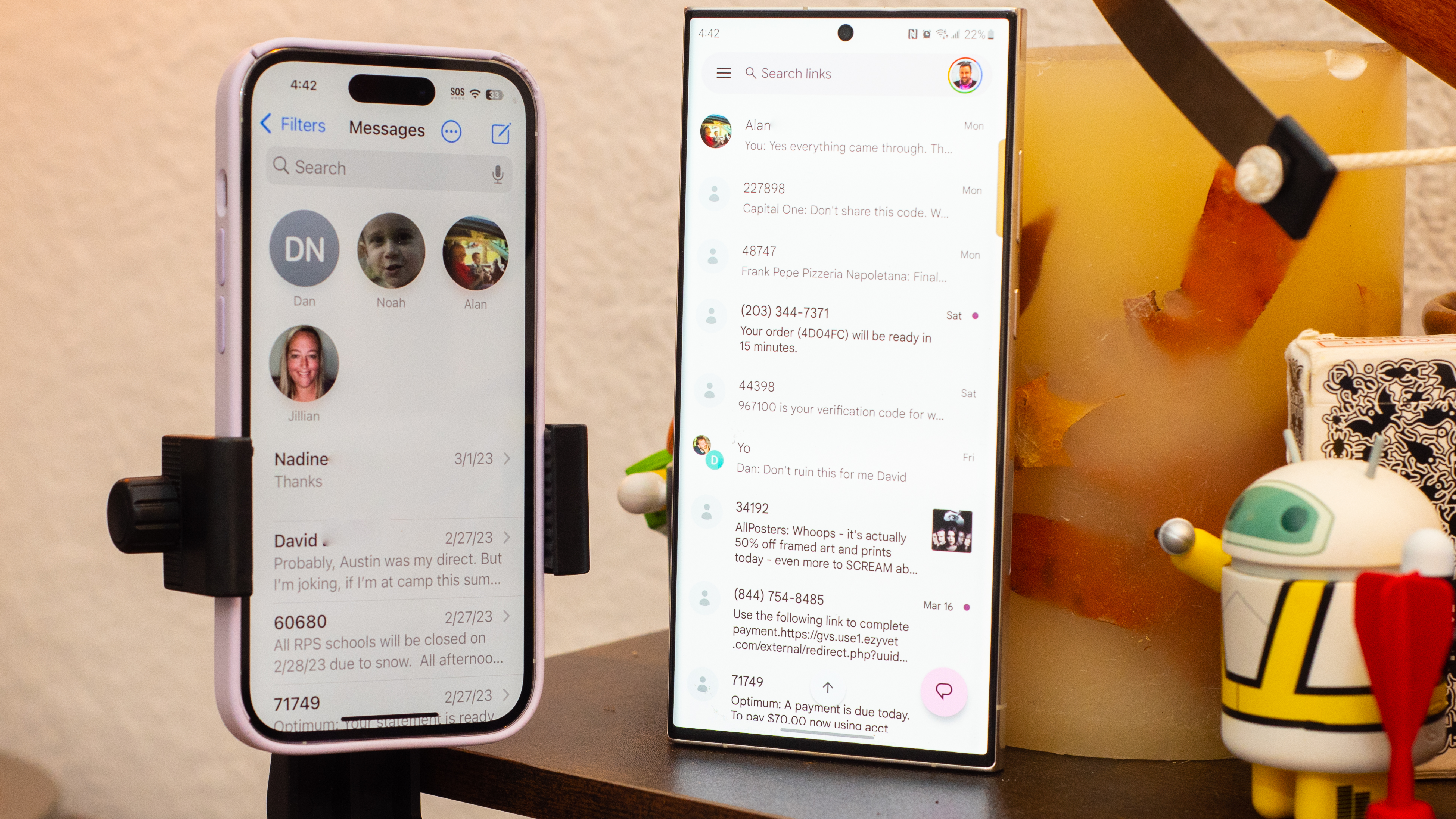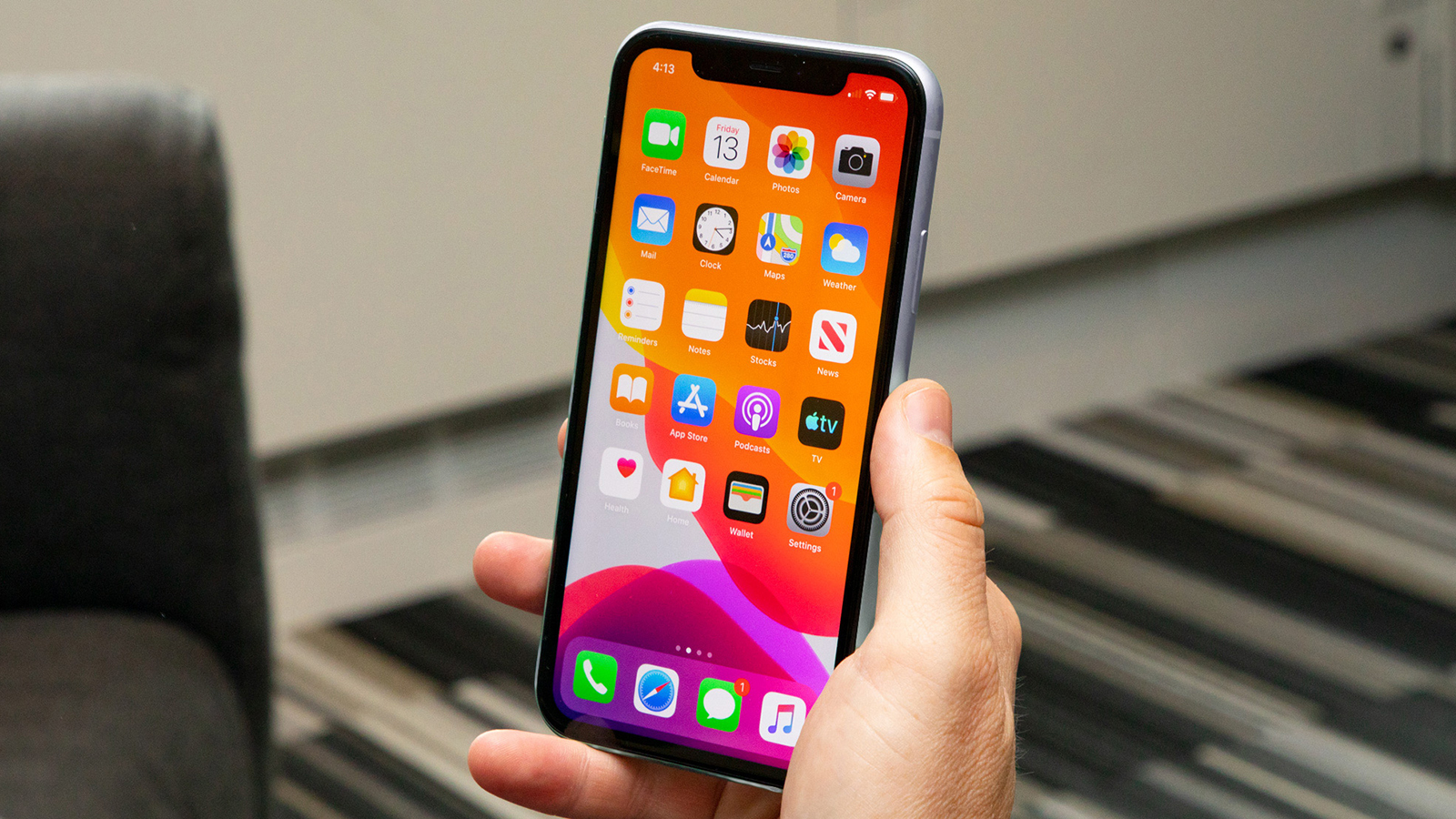I switched from my iPhone 14 Pro but iMessage wouldn't let me go
iMessage took over texting and hid messages from me

Sign up for breaking news, reviews, opinion, top tech deals, and more.
You are now subscribed
Your newsletter sign-up was successful
Sometimes I forget how badly Apple doesn’t want me to leave. This year I remembered, hard. I bought a Mac Mini, so I’m back on Mac OS, but I switched from an iPhone 14 Pro to a Galaxy S23 Ultra. Or at least, I thought I switched, but iMessage had other plans. I’ve switched before, but I forgot that this happens, that iMessage won’t let me leave. It’s time for Apple to give up this iMessage exclusivity that is hurting longtime users like me.
The iMessage hatred is real, whatever that means to you. For iMessage users, that means you hate anyone who doesn’t use iMessage. Those green bubbles let you know something secret about your sender, that they hide a secret phone shame. They don’t own an iPhone.
For Android users, it's hatred that you can’t see thumbs up, hearts, and other addendums. It’s hating the comments that iPhone users casually make about blocking all non-iPhone users, and wondering if there is something more spiteful they really wish they could say.
For switchers from iPhone to Android, it’s a special hatred when you realize that Apple has changed your text messaging behind the scenes, and you may not get important messages that people send you.
Why is iMessage still a problem in 2023?
Did you think that we were past this? Did you think that in 2023 we could move beyond the partisan hatred of iPhone vs. Android battles? Think again. Apple is keeping this battle alive, no matter how hard Google and the rest of us try to bury this hatchet and build a messaging bridge between the two platforms.
I own an iPhone 14 Pro and Android devices, including a Galaxy S23 Ultra and a Google Pixel 7 Pro. I use Windows and Mac OS computers, and I even have a Chromebook. I am purposefully platform agnostic.

Apple makes it nearly impossible to use iMessage if I am not completely brand loyal to its ecosystem and devices. In fact, the way that iMessage aggressively and surreptitiously changes messaging settings behind the scenes is harmful. It’s totally unnecessary. It borders on nefarious.
Sign up for breaking news, reviews, opinion, top tech deals, and more.
I don’t expect my devices to play nicely with each other, but there shouldn’t be any injuries. I expect machines to coexist. Using a feature on one device shouldn’t exclude me from using others. This isn’t true for Apple devices. When I use iMessage, it breaks text messaging.
When I first signed up for iMessage and attached my phone number to Apple’s dastardly platform, Apple associated that personal information with iMessage for every other iMessage user. When I send a text message to another iMessage user, their iPhone knows this is an in-crowd situation. Only blue bubbles appear.
If I send a text message via iMessage, am I really even sending a text message? Most iPhone users probably think they are sending text messages, since there isn’t an alternative SMS text messaging app included. Besides, the same messages go to everyone, iMessage or Android users alike. A text is an iMessage is a text.
Except that Apple has changed things. Apple has changed the way your friends see you, and the way your friends’ phones see you. Try leaving the iMessage circle and you’ll find out quickly what I mean.
You can check out any time you like, but...
The first thing that happens when you leave is that you may stop receiving text messages from people who use iMessage. Their iPhones got the secret code from Apple telling them that you were OK. It’s cool to send you secret messages via the Apple-only iMessage service. After you left, you kept the same phone number, but Apple didn’t bother to clue their phones into the news that you aren’t part of the circle any longer.
Your friends will send you text messages, but their iPhones will convert them to iMessages and send them through Apple’s service, to which you no longer have access. You won’t get those text messages. Your friends are texting into the void you left when you abandoned Apple. Hope there wasn’t anything important.
There is a process you need to follow if you want to dissociate yourself from iMessage. You need to turn iMessage OFF on your iPhone before you get rid of it. If you lost your iPhone, or just didn’t imagine this sort of flaming hoop to jump through, you need to go to a special Apple website.

Then you just politely ask please Mr. Tim Apple please take my phone number off iMessage and let me get my son’s text messages again. I really want to talk to my son, he’s my favorite human being, and I bought him the iPhone 11 he is using to not text me.
Only if Apple is feeling generous will it oblige. I followed this procedure and it didn’t work. I still couldn’t get messages.
The fix when this didn’t work was for my son to completely erase our entire text conversation and contact information from his phone, then start fresh. Apple literally insisted that his phone forget I exist, then I could send him text messages again.
He’s my kid, so it wasn’t too hard to walk him through this process. Imagine if you have to manage this with a casual acquaintance? A business associate? There should be no obstacles to sending a text message when you move from one platform to another, but Apple has created them, and removing those obstacles relies on an inconsistent system that is prone to failure.
Why am I still using text messaging in 2023?
I can’t think of any other social network ... that stops other people from talking to you after you leave
I work with an international team, so the first response I get when I pitch this ‘iMessage is bad’ story is ‘just use Telegram?’ I do use Telegram. I also use WhatsApp, and when iMessage stopped working, that’s how I let my kiddo know that I wasn’t getting his messages.
I use other messaging apps, but my phone has text messaging and I have contacts who prefer SMS. It should work properly. Apple’s exclusive features shouldn’t muck it up for the rest of us who aren’t currently playing the iPhone as our main character.
Apple fans love dying on the iMessage hill. Just this morning I heard a writer say they “should be able to tell whether [a message] came from a non iphone so you can get BLOCKED.” I know they were joking, but Apple fans want to believe that having an exclusive messaging app is a good thing.

iMessage is not a text messaging app, it is a social network. It is a network that is a one-way mirror for Apple users. Other users can participate in conversations, but with limited access to the entirety of what’s said and done. There’s more happening on the other side of the glass.
Worst of all, iMessage inadvertently fools Apple users into thinking they are using text messaging, when in fact they have signed up for an exclusive social network that is difficult to leave. I’ve had difficulty leaving, and I’ve left iMessage numerous times over the past dozen years.
I can’t think of any other social network or messaging service that tricks you in this way, or that stops other people from talking to you after you leave.
If there's nothing better, let's build something together
Apple’s iMessage is indefensible. Google has been trying to encourage Apple to adopt the RCS messaging standard it is co-developing. While RCS has problems, Apple’s refusal to work with Google for total cross-platform functionality is even more problematic.
Text messaging is a foundational feature in mobile phones and cellular technology. Text messages have been a part of cell phones since before keyboards, and SMS changed the way we communicate. Text messaging is now the norm for casual conversation, not phone calls.
Apple hasn’t made text messaging better with iMessage, it has created new barriers for users across platforms that never existed before. It is time for Apple to give up iMessage exclusivity, but more importantly, it is time for all of us to stop defending iMessage and its antisocial tactics.

Starting more than 20 years ago at eTown.com. Philip Berne has written for Engadget, The Verge, PC Mag, Digital Trends, Slashgear, TechRadar, AndroidCentral, and was Editor-in-Chief of the sadly-defunct infoSync. Phil holds an entirely useful M.A. in Cultural Theory from Carnegie Mellon University. He sang in numerous college a cappella groups.
Phil did a stint at Samsung Mobile, leading reviews for the PR team and writing crisis communications until he left in 2017. He worked at an Apple Store near Boston, MA, at the height of iPod popularity. Phil is certified in Google AI Essentials. His passion is the democratizing power of mobile technology. Before AI came along he was totally sure the next big thing would be something we wear on our faces.